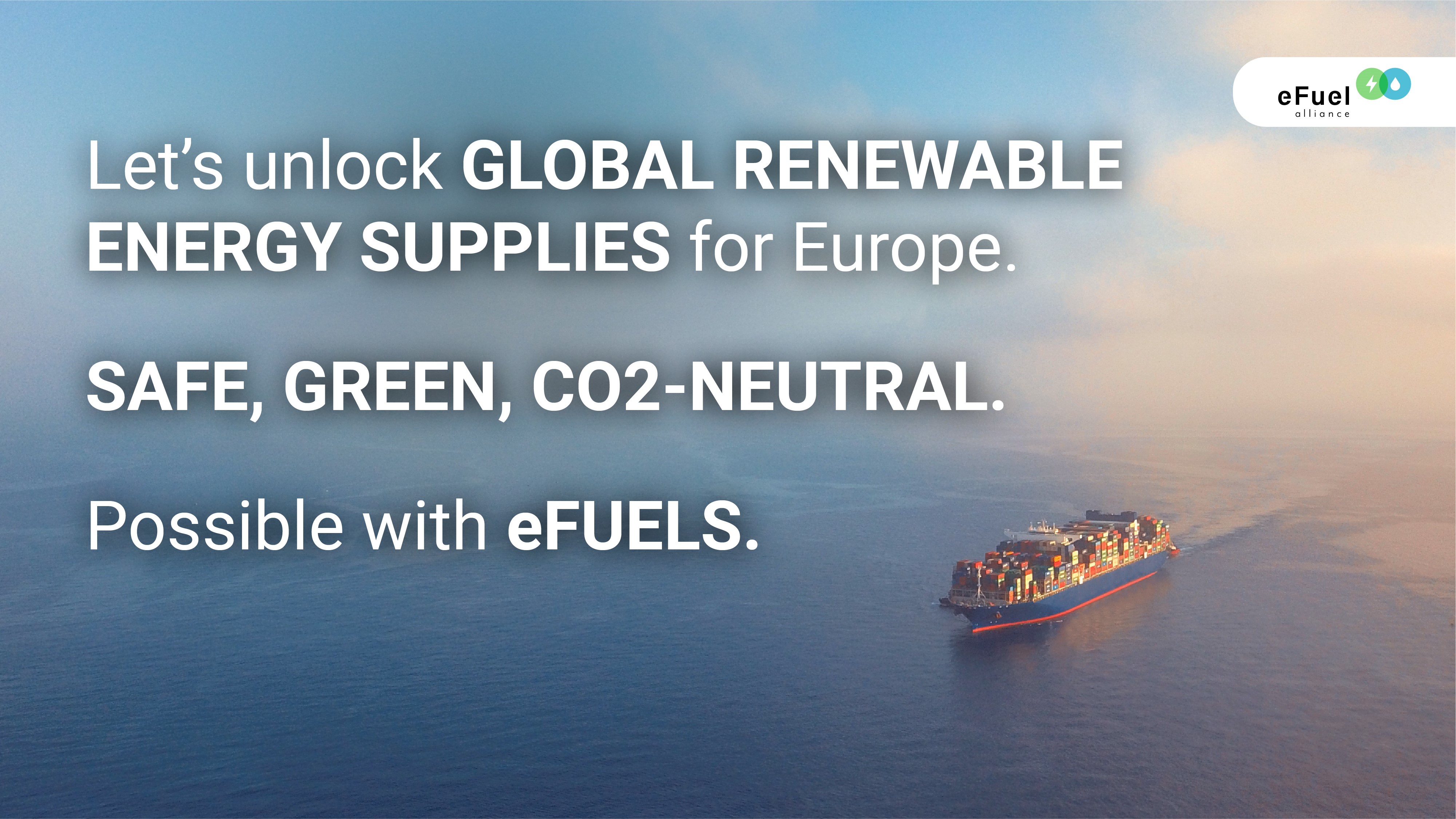The contribution of eFuels to
European energy supply
Providing Europeans with secure, sustainable, competitively produced and affordable energy is a mayor challenge for the European Union. On the one hand, a secure supply with minimal external vulnerabilities must be ensured, and on the other hand, the energy sector must become environmentally friendly in order to achieve climate neutrality of the economy by 2050.

Fossil fuel reserves are largely concentrated in a few regions of the world, which increases dependence on individual countries. The potential of renewable energies, on the other hand, is much more diversely distributed. However, renewable electricity is difficult to store and transport over long distances. Therefore, conversion into chemical energy carriers such as eFuels is necessary to make the global potential usable. To this end, plannable, long-term demand must be stimulated as quickly as possible through European regulations, which are currently being discussed and decided in Brussels as part of the Green Deal.
![[Translate to Englisch:] Unsplash / Karsten Wuerth / ZKWgoRUYuMk](/fileadmin/Bilder/eFuels/Energiesicherheit_2.jpg)
Demand stimulation in the RED
European demand for climate-friendly energy sources can be achieved through an ambitious design of the Renewable Energy Directive (RED). We call for an increase of the overall quota to 20% GHG reduction in transport and a minimum quota for green hydrogen and eFuels of 5% in 2030. These increases will lead to billions of investments from the private sector in the necessary industrial expansion of a renewable energy power generation especially at international top locations and synthetic fuels produced from it.
In 2020, the EU imported 113 million tons of crude oil from Russia. In 2018, approximately 3.900 TWh of transport fuels were consumed in the EU. With an ambitious GHG quota of 20% in the RED, about 920 TWh of fossil fuels could be replaced. In terms of energy, this corresponds to 70% of all Russian crude oil imports while fully ensuring mobility supply.
![[Translate to Englisch:] GettyImages /1277905184](/fileadmin/Bilder/eFuels/Energiesicherheit_1.jpg)
Demand stimulation in the CO2 fleet regulation
Crediting renewable fuels in the CO2 fleet regulation for new passenger cars, light and heavy-duty commercial vehicles would allow the automotive industry to demand additional volumes beyond the RED for applications that are difficult to electrify. This would provide further necessary investment in the future.


